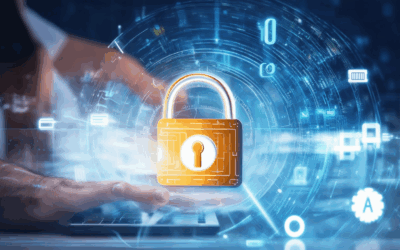As we increasingly rely on the internet for communication, entertainment, and information, it’s essential to prioritize our online safety and security. With the rise of cyber threats and online risks, it’s crucial for both seniors and parents to understand how to navigate the digital world safely. From basic computer security measures to online behavior guidelines, there are numerous online safety tips that can help protect individuals from potential harm. By following these simple yet effective strategies, you can safeguard your personal data, avoid phishing scams, and maintain a secure online presence.

7 Essential Internet Safety Tips
I’m committed to helping you stay safe online, which is why I’ve compiled these 7 essential internet safety tips.
-
Tip 1: Use Strong, Unique Passwords
Create complex passwords that combine uppercase letters, numbers, and special characters. Consider using a password manager to securely store your login credentials.
-
Tip 2: Enable Two-Factor Authentication (2FA)
Add an extra layer of security to your accounts by enabling 2FA. This requires both a password and a verification code sent to your phone or email to access your account.
-
Tip 3: Keep Software Up-to-Date
Regularly update your operating system, browser, and other software to ensure you have the latest security patches and features.
-
Tip 4: Be Cautious with Email Attachments and Links
Don’t open suspicious emails or attachments, and avoid clicking on links from unknown senders. These can contain malware or phishing scams.
-
Tip 5: Use a VPN for Secure Browsing
A Virtual Private Network (VPN) encrypts your internet traffic, protecting your data from hackers and surveillance.
-
Tip 6: Monitor Your Online Activity
Regularly check your bank statements and credit reports for suspicious activity. Also, review your social media and online profiles to ensure your personal info remains private.
-
Tip 7: Educate Yourself on Cybersecurity Best Practices
Stay informed about the latest cybersecurity threats and trends. Attend workshops, webinars, or online courses to enhance your knowledge and skills.
By following these 7 essential internet safety tips, you’ll significantly reduce your risk of falling victim to cyber attacks and maintain a safer online presence.
Staying Safe Online: 5 Essential Rules
I’m committed to protecting my online presence and I want to share these crucial guidelines with you.
-
Rule 1: Use Strong, Unique Passwords
-
Rule 2: Enable Two-Factor Authentication (2FA)
-
Rule 3: Keep Software Up-to-Date
-
Rule 4: Be Cautious with Email Attachments and Links
-
Rule 5: Monitor Your Digital Footprint
Create complex passwords combining uppercase letters, numbers, and special characters. Avoid reusing passwords across multiple accounts. Consider using a password manager to securely store and generate unique passwords.
Enable 2FA whenever possible to add an extra layer of security. This can be done through authenticator apps, SMS codes, or biometric authentication methods like facial recognition or fingerprint scanning.
Regularly update your operating system, browser, and other software to ensure you have the latest security patches and features. Outdated software can leave you vulnerable to cyber threats.
Be wary of suspicious emails, attachments, or links. Never download files or click on links from unknown senders, as they may contain malware or phishing scams.
Regularly review your social media profiles, online accounts, and credit reports to ensure your personal information remains private and secure. Adjust your settings to limit who can see your information and consider using a VPN for added protection.

Safety Rules
I believe it’s essential to teach children various safety rules to ensure their well-being and protection in different situations.
-
Rule 1: Stay Alert and Aware
Always be mindful of your surroundings, whether you’re walking, playing, or engaging in any activity. Keep an eye out for potential hazards and take necessary precautions.
-
Rule 2: Use Protective Gear
Wear protective gear such as helmets, knee pads, and elbow pads when participating in sports or activities that may involve physical contact or impact.
-
Rule 3: Follow Traffic Rules
When crossing streets, always look left, right, and left again before stepping onto the road. Make sure to follow traffic signals and pedestrian crossings.
-
Rule 4: Handle Fire Safely
Never touch fire or hot surfaces, and keep a safe distance from flames. If you see a fire, alert an adult immediately and stay away from the area.
-
Rule 5: Swim Safely
When swimming, always swim with a buddy and follow pool rules. Make sure to enter and exit the pool safely, and never dive into shallow water.
-
Rule 6: Practice Good Hygiene
Wash your hands regularly, especially after using the bathroom, before eating, and after blowing your nose, coughing or sneezing. Cover your mouth and nose when coughing or sneezing.
-
Rule 7: Respect Strangers
Don’t talk to strangers, and never accept anything from someone you don’t know. If you get lost, find a trusted adult or go to a safe place until help arrives.
-
Rule 8: Use Technology Responsibly
Be cautious when using technology, and never share personal info or passwords with others. Set boundaries and limits on screen time to maintain a healthy balance.
-
Rule 9: Stay Safe Online
Be aware of online predators and cyberbullying. Never click on suspicious links or download unknown files. Report any incidents to a trusted adult or authority figure.
-
Rule 10: Trust Your Instincts
If something feels off or doesn’t feel right, trust your instincts and seek help. Don’t hesitate to ask for assistance or report concerns to a trusted adult or authority figure.

Staying Safe Online: 4 Essential Tips
I’m committed to protecting my online presence and I want to share four valuable tips to help you stay safe online.
-
Be Cautious with Public Wi-Fi
When using public Wi-Fi networks, consider using a Virtual Private Network (VPN) to encrypt your internet traffic. This adds an extra layer of protection against hackers who might try to intercept your sensitive information. You can find reliable VPN services at ExpressVPN and NordVPN.
-
Keep Software Up-to-Date
Maintaining the latest software versions ensures you have the most recent security patches and features. Regularly update your operating system, web browser, and other applications to prevent vulnerabilities from being exploited. Visit Apple Support for guidance on updating macOS and iOS devices.
-
Verify Website Authenticity
Before entering sensitive information on a website, check its URL for any spelling mistakes or suspicious characters. Legitimate websites typically start with “https” and display a lock icon in the address bar. Be cautious of phishing scams and always verify the authenticity of emails and messages before clicking on links or downloading attachments. Learn more about online safety at FTC.gov.
-
Monitor Account Activity
Regularly review your account statements and credit reports to detect any unauthorized transactions or changes. Set up alerts for unusual activity and report suspicious behavior to your bank or financial institution immediately. Stay informed about identity theft prevention at IdentityTheft.gov.
The 3 Cs of Online Safety
As someone who values online security and anonymity, I’ve learned that there are three essential components to staying safe online: Content, Contact, and Conduct.
- Content: This refers to the information we share online, whether it’s through social media posts, emails, or online forums. Being mindful of the content we consume and create is crucial in avoiding potential risks. For instance, clicking on suspicious links or downloading unknown attachments can compromise our devices and personal data.
- Contact: This involves interacting with others online, whether it’s through messaging apps, video conferencing, or online communities. Establishing trust with strangers online can be challenging, and it’s essential to verify the identity of individuals before sharing sensitive information or engaging in financial transactions.
- Conduct: Our online behavior and actions play a significant role in determining our level of safety. Practicing good digital hygiene, such as regularly updating software and using strong passwords, can significantly reduce the risk of cyber threats. Additionally, being aware of our surroundings and reporting suspicious activity can help prevent online harassment and exploitation.
By understanding and implementing these three Cs, we can significantly enhance our online safety and security. At Blind Browser, we’re committed to providing resources and tools to help individuals navigate the complexities of online security and stay protected in the digital world.
- Regularly update your operating system, browser, and other software to ensure you have the latest security patches.
- Use strong, unique passwords for all accounts, and consider enabling two-factor authentication for added security.
- Be cautious when clicking on links or downloading attachments from unknown sources, and never provide sensitive information to unsolicited requests.
- Verify the identity of individuals before engaging in online interactions, and report suspicious activity to the relevant authorities.
By following these guidelines and staying informed about the latest online safety trends, we can work together to create a safer and more secure digital environment for everyone.

Protect Yourself Online
I’m committed to staying safe online, and I want to share three essential ways to protect myself.
-
1. Use Strong Passwords and Enable Two-Factor Authentication
-
2. Be Cautious with Public Wi-Fi and Avoid Phishing Scams
-
3. Keep My Software Up-to-Date and Use Antivirus Protection
Having strong passwords and enabling two-factor authentication can significantly reduce the risk of account hacking. I use a password manager to generate unique and complex passwords for each of my accounts. Additionally, I enable two-factor authentication whenever possible to add an extra layer of security.
For example, I use Blind Browser’s password manager to securely store my login credentials. By doing so, I can rest assured that my sensitive information remains protected.
When using public Wi-Fi networks, I take precautions to prevent unauthorized access to my devices. I use a VPN to encrypt my internet traffic and avoid accessing sensitive information while connected to public networks.
I’m also mindful of phishing scams and never click on suspicious emails or download attachments from unknown senders. To stay informed about the latest online threats, I regularly visit Blind Browser’s phishing scam resource page.
Maintaining up-to-date software and antivirus protection is crucial for preventing malware infections and other online threats. I regularly update my operating system, browser, and other applications to ensure I have the latest security patches.
I also rely on reputable antivirus software, such as Blind Browser’s recommended antivirus solutions, to detect and remove potential threats from my device.




